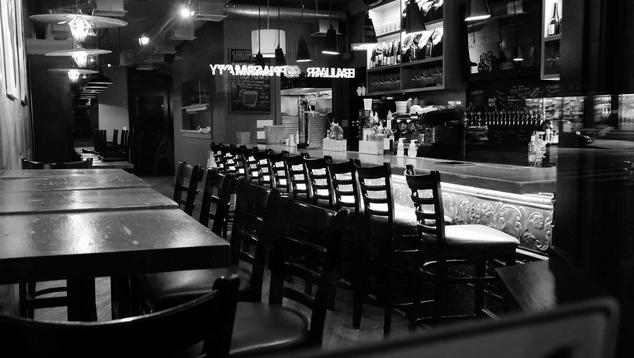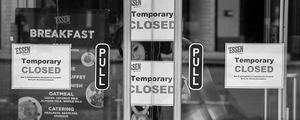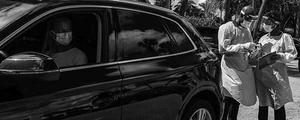The American public's perceptions of the coronavirus crisis and government efforts to deal with it are critically important. Americans are being asked to go along with dramatic mandates and recommendations for changes in their daily lives. If Americans define the situation as real, they will accept these consequences as real and necessary. If Americans have doubts about the legitimacy of the crisis or the government's actions, their cooperation could begin to fray.
Events surrounding the virus situation have been extraordinarily fast-moving, meaning that public opinion on the topic is also a fast-changing target. Gallup is continuing to update our surveys on the virus and its consequences, and other survey organizations are providing insights as well. What follows is my review of 10 important findings from the data on hand as of now, with the realization that much can and probably will change.
1. Americans Are Paying Attention
This doesn't come as a great surprise, but a Wall Street Journal/NBC News survey conducted March 11-13 confirmed that a nearly universal 99% of registered voters said they had seen, read or heard about the coronavirus. A Pew Research survey conducted March 10-16 found 89% were following the news about the coronavirus very (51%) or somewhat (38%) closely (PDF download).
2. Concern Has Increased Rapidly From Month-Ago Baseline Numbers
As we would expect, given the news focus on the dramatic rise in reported coronavirus cases, concern about the situation has increased significantly in just a period of weeks. Gallup's initial questions about the virus were in a Feb. 3-16 survey, and showed 36% were very or somewhat worried that they or someone in their family "will be exposed to coronavirus." In our March 2-13 update, that level of worry had risen to 60%.
An NPR/PBS NewsHour/Marist poll showed a jump from 44% to 70% of adults who were concerned or very concerned about the spread of the coronavirus (PDF download) to their community between their February and March surveys. The Wall Street Journal/NBC News poll conducted March 11-13 didn't have a February reading, but showed 53% of voters were worried that they or someone in their immediate family might get the virus.
The bottom line: most Americans are worried about the virus spreading to their community, and about half are worried that they or a member of their family will catch it. The trend lines suggest these numbers will increase going forward.
3. Trust in Government to Handle Situation Declines
As concern about the virus has increased, trust in the federal government to handle the situation has concomitantly decreased. Gallup's first measure of confidence "that the federal government will be able to handle an outbreak of the Coronavirus" was the Feb. 3-16 survey, which showed a pretty confident population -- with 77% saying they were very or somewhat confident that the federal government would be able to handle an outbreak. (President Donald Trump quoted these data in his speeches and tweets.)
But Gallup's latest update, from the March poll, shows confidence in the federal government has dropped to 61%. The NPR/PBS NewsHour/Marist poll found a February to March drop from 61% to 46% of Americans who say the federal government is doing enough to deal with the virus.
4. Local, State Governments Trusted More Than Federal Government
Americans have a substantially higher level of confidence in their state and local governments to handle the coronavirus crisis than they do in the federal government. The NPR/PBS NewsHour/Marist poll found a 65% confidence level in state government, compared with 46% (as seen above) in the federal government. The Wall Street Journal/NBC News poll shows voters give a 75% confidence rating to their state government, 72% to their local government and 62% to the federal government.
This is consistent with long-standing Gallup data showing that Americans in general have more confidence in their local and state governments than they do in the federal government. This corresponds to historical Gallup research showing that Americans believe the federal government wastes more of each tax dollar collected than either state or local governments do.
5. Americans Are Still Calculating the Impact on Their Personal Lives
The Wall Street Journal/NBC News poll shows that a relatively small 26% of American voters say the virus has changed their lives in a very or fairly major way. Looking ahead, less than half (41%) say it will change their lives in a major way.
A Gallup survey conducted March 13-16 found somewhat more negative reports, with 36% saying the virus had disrupted their life to a fair extent and another 19% saying the disruption was major. The Pew survey found that 78% of Americans say the coronavirus will be at least a minor threat to their personal health (27% a major threat/51% a minor threat) and 77% saying it will be a threat (34% major/43% minor) to their personal financial situation.
Gallup's March 13-16 survey, and both the Marist and the Wall Street Journal/NBC News polls, asked respondents about a list of disruptions or changes in their daily living brought about by the virus. As of the time of these surveys, the highest levels of changes were in reports of avoiding large gatherings or crowds and in restricting travel. Almost six in 10 Americans interviewed by Gallup said they were avoiding crowds, while 48% of Americans in the Marist poll said they had canceled plans in order to avoid large crowds, and 47% of voters in the Wall Street Journal/NBC News survey said they had stopped or planned to stop going to large gatherings. Fifty-five percent of those interviewed by Gallup reported avoiding travel by airplane, bus, subway or train. Some 46% of Americans in the Marist poll said they were eating at home more often. Smaller percentages across these three polls said they had done other things, such as stockpiling supplies and avoiding going to public places.
What about work? Gallup's March 2-13 survey showed that half of U.S. workers said the virus would have a very or somewhat negative effect on their workplace. Pew's survey showed that 23% of all Americans are workers who claim that if they could not work for two weeks, they would likely not get paid and it would be difficult for them to keep up with their basic expenses.
6. Most Americans Expect the Crisis to Improve Within a Few More Months
The March 13-16 Gallup study asked Americans how long the disruption caused by the virus will last before it begins to improve. Thirty-eight percent say it will last a few more weeks, while half say it will be a few more months before improvement is seen (the rest say it will be longer than a few months). The Wall Street Journal/NBC News poll found that six in 10 voters said the "worst is yet to come." The Pew survey showed that about half of Americans believe there will be a coronavirus vaccine available in a year or more; 25% say it will be available in the next few months or is already available.
7. Initial Reactions to the Virus Highly Partisan, but That Could Change
Much of the way Americans look at the world today reflects their underlying political partisanship, and initial evidence shows that the coronavirus situation is no exception.
Available polling shows major differences between the views of Republicans and Democrats in response to many of the questions asked about the virus. Gallup finds that Democrats are much more likely than Republicans to be worried about getting the virus; much less trusting in the federal government to deal with the situation; and more likely to believe that the virus will have a negative effect on the world's economy. Further, workers who identify or lean toward the Democratic Party are more likely to say the virus will have a negative impact on their work.
The NPR/PBS NewsHour/Marist poll finds that Democrats are more than three times as likely as Republicans to be "very concerned" that the virus will affect their local community. The Wall Street Journal/NBC News poll shows that "More than 8 in 10 Republicans have a fair amount or great deal of confidence in federal officials to handle the crisis, while just 48% of Democrats and 51% of independents do." Pew shows that 59% of Democrats and Democratic-leaning independents say the "outbreak is a major threat to the health of the U.S. population as a whole," while only 33% of Republicans and Republican leaners agree.
It is certainly possible that this significant partisan gap in views of the coronavirus situation will narrow in the weeks ahead. Partisans take cues from the statements of their leaders, and Trump and other Republican politicians initially were publicly skeptical of the significance of the virus, in some instances claiming that it reflected a partisan effort by Democrats and "the media" to criticize Trump. Now, Trump and his allies have begun to move away from that previous posture and are at the forefront of proclaiming the seriousness of the crisis. As media observers have noted, this in turn has brought about shifts in the tone of the coverage by Fox News, and these shifts may narrow the partisanship gap in the days and weeks to come if rank-and-file Republicans follow the cues given by their favored thought leaders.
8. Long-Term Impact on Trump Still Up in the Air
Major domestic and international crises can end up being pluses for politicians' images, such as happened after 9/11 when George W. Bush's job approval rating shot up to 90%, still the highest in Gallup history. On the other hand, the Iranian hostage crisis that began in late 1979 is credited with having caused a significant drop in President Jimmy Carter's job approval ratings (after an initial uptick), and it ultimately was part of the reason for Carter's defeat in his 1980 re-election bid.
It is too early to calculate the long-term effect of the coronavirus situation on Trump's job approval rating and on his probability of being re-elected in November. The high level of rigidity built into perceptions of politicians today as a result of political polarization means it takes a lot to move Americans' views of the president substantially in either direction.
Gallup did report a modest drop in President Trump's job approval ratings in its early March survey, down from an uptick measured in January and February of this year. It's unclear, however, whether this decline represents a normal return from a short-term peak (perhaps reflecting the impeachment situation) or reflects the coronavirus situation.
When asked directly about how well Trump is handling the virus situation, 48% of voters in the Wall Street Journal/NBC News survey say they have confidence in his handling of the situation; 37% of Americans in the NPR/PBS NewsHour/Marist poll say they trust the information they hear from Trump about the crisis; and 45% of Americans interviewed in Pew's poll say they have confidence that Trump is doing a good job of responding to the situation. These numbers are roughly in sync with the president's overall job approval rating.
One of the central thrusts of Trump's re-election campaign this year is to position him as having been responsible for an economic boom. The virus situation is changing that dramatically, with major losses in the stock market and the probability of a big jump in unemployment in the months ahead. Gallup's latest data already show the beginnings of a loss of confidence in the economy. In February, 61% of Americans said the economy was getting better, while 33% said it was getting worse. In Gallup's March 2-13 survey, 47% say the economy is getting better and 47% say it is getting worse (Gallup's Jeff Jones reports in his analysis that the pessimism was even higher in the second half of the two-week survey.)
Overall, the coronavirus situation has created a major disruption in Trump's campaign planning and his re-election prospects. Whether his handling of the situation ultimately ends up being a positive or a negative (or has little effect on highly polarized voters) remains to be seen.
Likewise, it's too early to measure the impact of the situation on the presumed Democratic nominee Joe Biden, but he has put forth his own "Biden Plan to Combat Coronavirus," and the virus dominated last Sunday's Democratic debate with Bernie Sanders.
9. Public Health Officials Most Trusted
The existing research underscores the high level of faith the American people have in the country's public health agencies. The NPR/PBS NewsHour/Marist poll found 84% trust the information they get from public health experts, and Pew found that 83% have confidence in "Public health officials at the CDC, Centers for Disease Control and Prevention" to do a good job of responding to the coronavirus outbreak. In both polls, these levels of confidence are the most positive tested, higher even than confidence in state and local officials.
10. News Media Getting Good Marks for Coverage but Seen as Exaggerating the Crisis
Pew Research's survey shows that the news media are initially getting reasonably good overall evaluations from the public for their coverage of the virus situation. Seven in 10 Americans say the news media have covered the situation very or somewhat well. An even higher 82% say the news sources the respondent turns to most often are covering the situation well.
Despite these positive overall reviews, Pew finds that over six in 10 Americans believe the news media have exaggerated the risks of the virus at least slightly, including almost four in 10 who say the risks have been "greatly" exaggerated (the report also finds that, on the other hand, the majority say Trump has not taken the risks seriously enough).




